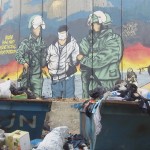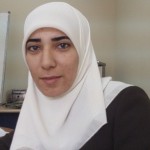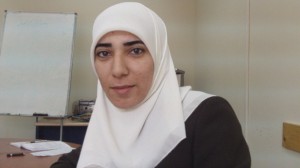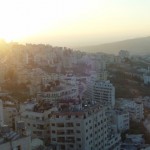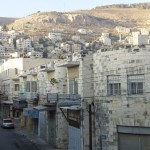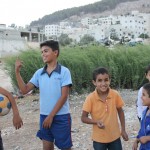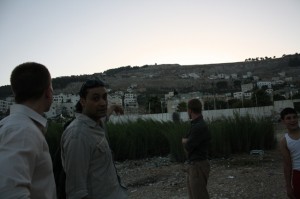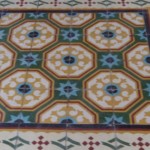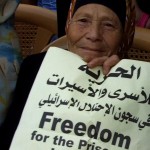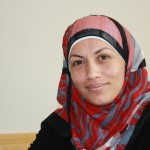
 BY: MUNA NU’MAN
BY: MUNA NU’MAN
In May 2003, the Israeli occupation forces imposed a curfew on my village. The curfew continued for several days, they didn’t allow us to go anywhere. There was a food shortage, people needed essential things like bread, vegetables and milk for the children.
While this was happening, the schools where my sons and daughter attended were still open in a village nearby. I decided to take them to school, a huge risk because of the curfew.
The Israeli tanks stopped opposite to our house because it was closest to the area that wasn’t under curfew and siege. When the tanks went away, I took my sons and daughter to school.
They had a typical school day, as they had experienced before the siege. At the end of the day we bought some food, and began walking home.
When we approached our neighborhood, it was imperative for us to go through wheat fields instead of going through the street that leads to our house. We walked into the field, but the Israeli soldiers saw us from their tanks.
They turned their machine guns toward us. We felt so scared and frightened, we didn’t know what to do.
I didn’t have time to think. I asked my children to lie on the ground under the wheat spikes. We began to crawl while the bullets were going over our heads. We were calling out to God to bless our lives. Despite the scorching sun, we continued crawling until we reached the edge of a lemon and orange orchard.
We remained there for about two hours. We were very tired and hungry and had only oranges to eat. We finally heard the tanks leaving our neighborhood to return to the nearby Israeli settlement. We quickly began to run out of the field.
We ran to our village and when we reached the main street, I found my husband and the Red Cross waiting there. They all thought that they wouldn’t find us alive because witnesses told them that a woman with three children were stuck in the gun fire.
For us as Palestinians, this danger is a daily routine. All of us hold our lives in our hands, not knowing what destiny awaits.
